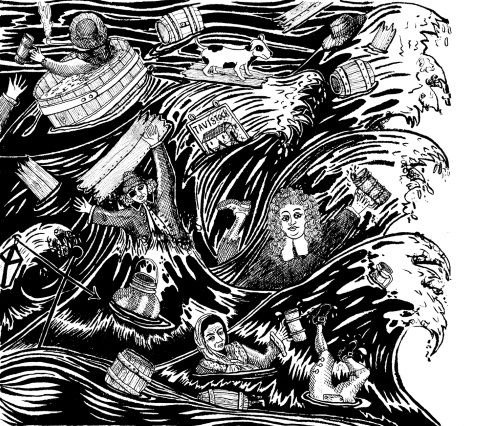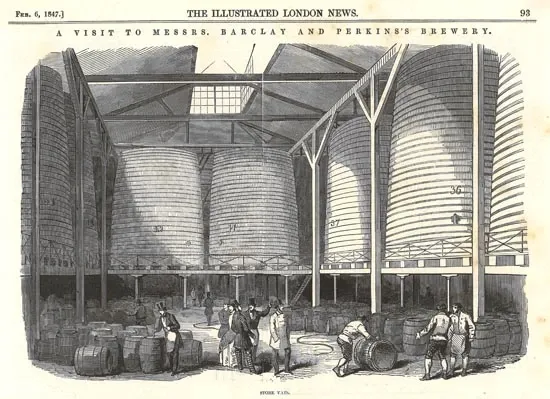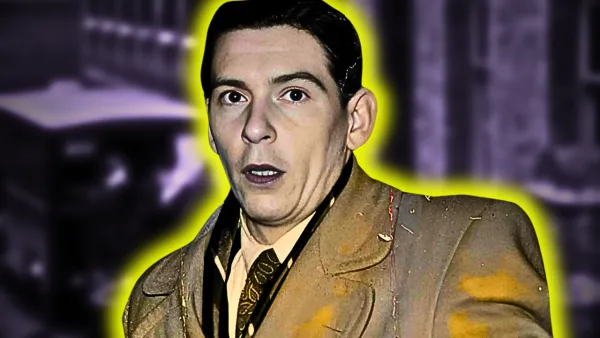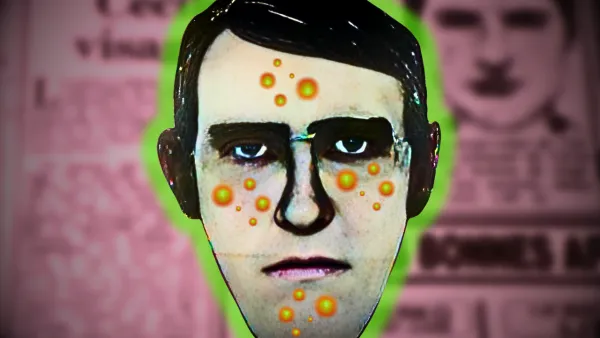1814 London Beer Flood: Historical Insights into the Tragic Brewery Disaster
Explore the 1814 London Beer Flood, a unique historical event where a massive beer vat ruptured, causing a deadly flood in St. Giles. Discover the causes, aftermath, and impact of this tragic brewery disaster, with a focus on historical insights and the lasting legacy in London's history.

The Great London Beer Flood of 1814 that killed 8 people
Let's wind the clocks back to 1814, to the days when London's skyline was a potpourri of soot, masts, and chimneys, and when St Giles was, to put it delicately, a place where one could enjoy the aromatic blend of sewage, sin, and stout. Yes, stout—as in beer, because on a fateful day in October, the streets ran dark with porter, not from a revelry but from a disaster of truly British proportions: The London Beer Flood.

On Monday, the 19th of October, as the clock neared the tick of 5 PM, an ominous clank echoed behind the façade of Henry Meux's Horseshoe Brewery. Now, George Crick, who had been in Meux's employ for 17 years, had seen his fair share of mishaps. Vats lost their hoops like lords lost their pants—frequently and without much fuss. But on that evening, as the hoop dropped, so too did the stomachs of those who heard it. Crick, with the nonchalance of a man who'd survived the Napoleonic wars by sheer apathy, sent a note to Mr. Young, a partner in the brewery. But little did he know, that piece of paper was about to be worth as much as a drunk's promise.
The brewery, you see, was home to vats that could make a teetotaler weep—22 feet high and bloated with 7,660 barrels of porter, these monstrous barrels were the peacocks of the porter world. Londoners came from all ends to gawk at these vats, as if they were the 8th wonder—forgetting, for a moment, that they resided in a neighborhood that could give Dante's Inferno a run for its money.

But let's not wander too far from our tale—back to the brew room, where George Crick had just returned, only to be greeted by a tidal wave of beer. Imagine his surprise—though, given his occupation, perhaps he had always dreamed of drowning in his work. A fellow worker, merelyDeadsDeathree yards from the epicenter, found himself knee-deep in the drink without a pub in sight.
The streets of St Giles Rookery, already awash with every vice known to man, were suddenly flooded by a 15-foot wave of beer. Houses were inundated, and basements, already grim dwellings for the many poor souls, became sudden taverns of terror. A child's wake turned tragic as the beer rushed in, turning the solemn event into a deadly affair. Death by drink—a darkly ironic end for the unfortunate.
It's said that the paupers of St Giles didn't let a good crisis go to waste. As the beer flowed like a river of despair, the denizens took to the streets with pots, pans, and any semblance of a container to capture the libation. The workers of the brewery, ever the entrepreneurs, began charging for direct sips from the vats. One could say, in the midst of tragedy, London found its spirit(s).
But the aftermath was no laughing matter. While the brewery petitioned the Treasury, lamenting over the loss of their liquid assets—some 7,660 barrels—the real cost was far graver. The flood claimed eight souls, snuffed out not by famine or disease, but by beer. The youngest, just three years of age.
The courts, in a decision that reeked more of stout than sense, deemed the incident an 'act of God'. No restitution for the victims' families, no penalty for the brewery. It was, according to the legal minds, as unavoidable as rain in London.
And so, the Great London Beer Flood slipped into the annals of history, a footnote in a city teeming with tales. A tragic event, yes, but one can't help but marvel at the sheer absurdity of it all. It serves as a dark reminder that sometimes, life can be as unpredictable and bitter as the porter that drowned St Giles.
As for the beer-soaked streets, they eventually dried, leaving behind a tale so outlandish, it could only be true. And for a city that has seen more than its fair share of history, the Beer Flood stands out as a testament to London's resilience, its capacity for tragedy, and its ever-so-British knack for darkly humorous twists of fate. So, here's a toast to those who found mirth in misfortune, and a remembrance for those who did not live to drink another pint.





